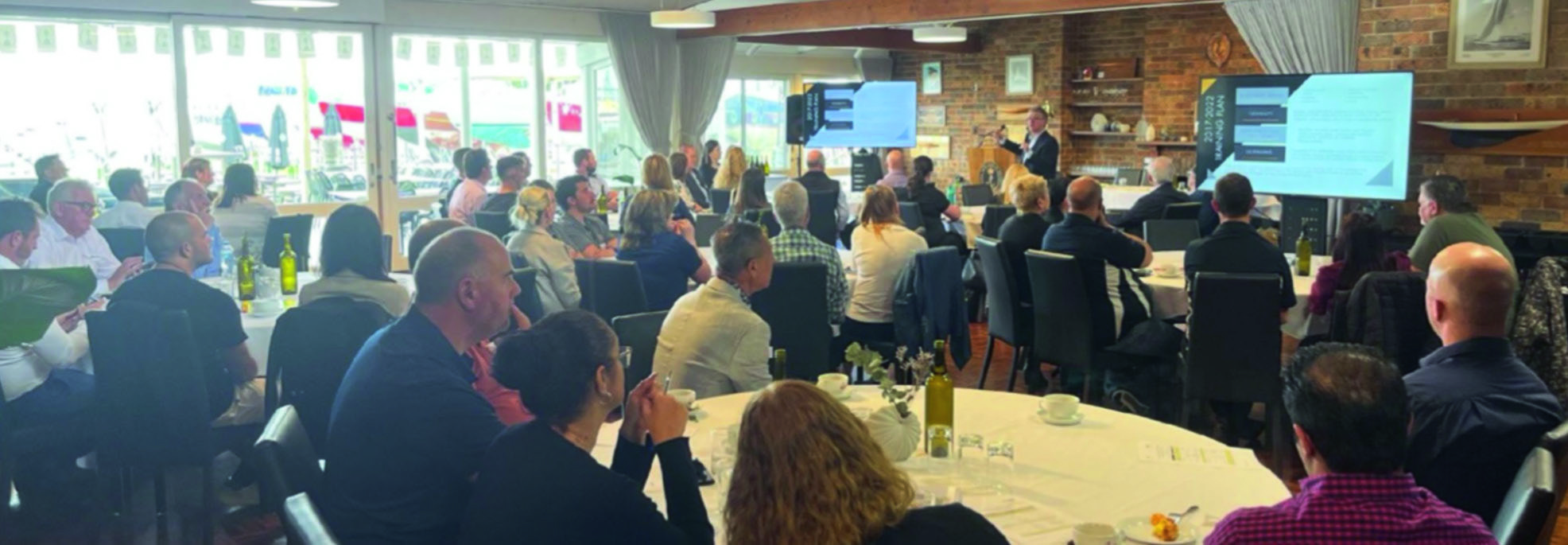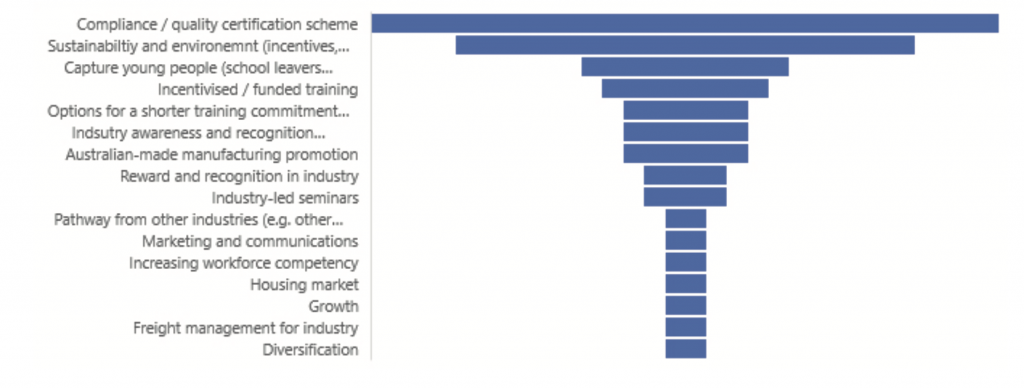

The Blind Manufacturers Association of Australia (BMAA) – in partnership with The Frontline Group – hosted the 2022 National Training Summit for the window furnishing industry in Melbourne on 11 November 2022.
Over 80 industry representatives from across Australia attended the second Industry Training Summit held at the Royal Yacht Club of Victoria
The first summit, held in 2017, resulted in the National Industry Training Plan 2017-2022 for the Blinds, Awnings and Shutter industry. The national training plan has led to an industry-wide, consistent program of training designed by the industry for the industry.
Director of The Frontline Group Steve Quirk told WFA that attendees were actively involved in the workshop, with the industry delegates identifying a list of the top five challenges and top five opportunities.
“From this valuable feedback, the Training Plan 2023-2028 is being drafted and will be circulated throughout the industry in early 2023 and be discussed at a series of State Forums scheduled for February / March 2023,” Quirk said.
Perspectives shared and debated by the industry practitioners present included potential opportunities and challenges to be faced by the industry in the coming five years.
Potential opportunities
The five top opportunities identified during the Summit held in November 2022 were:
1. Certification
A certification scheme for both installers and manufacturers, where businesses are recognised for their quality and compliance to standards including quality materials, qualified tradespeople and commitment to product quality. The opportunity for the BMAA to review and set clearer standards for industry across:
a. product quality (cyclone resistance, sustainability and environmental impact)
b. material / design quality (including fire and cyclone resistance)
c. installation quality (e.g. compliance certificates and more detailed quality standards and tolerances)
b. invoicing and payments (e.g. an agreed national progress payment format).
2. Sustainability
Environmental sustainability and energy efficiency being a focus for the future, including:
a. solar power
b. thermal efficiency of buildings
c. incentives (e.g. rebates to include those related to window furnishings)
d. use of sustainable and recyclable materials
e. finding ways to recycle existing product
3. Recruitment
Capturing the attention of young people so they can see a clear career path in this industry:
a. school based programs (VET in Schools / VCAL / SBATs)
b. having a presence at career expos to be seen as an industry to strive towards
4. Funding
Having better access to incentivised / funded training:
a. government subsidies
b. BMAA subsidies
5. Fast tracking of qualifications
Exploring efficient ways to get people qualified:
a. options for a shorter, more intensive training commitment
b. recognition of experience / prior learning
The industry delegates attending the Industry Training Summit ranked the priority of importance of the above opportunities as follows:

Potential challenges
The top challenge areas businesses expected to face over the coming five years included:
1. A lack of, or unclear regulation and standards that are inconsistent between states and territories and each individual business
2. Labour shortages
a. skilled labour is hard to secure
b. hiring unskilled labour is costly, compounded by people not committing to work despite applying, interviewing and being made a job offer.
c. poor retention
3. Lack of industry awareness, particularly as a viable career
4. Procurement challenges
a. Freight (cost and time)
b. Materials (cost and availability)
5. Product knowledge
a. of sales people and installers
b. of customers – who can have unrealistic expectations.
The industry delegates attending the Industry Training Summit ranked the priority of importance of the above opportunities as follows:
A call for trainers
“With the growth of training in the industry, we are looking to grow our team of industry experts to support the growth of training, please contact us if you, or someone you know, may be interested in becoming a trainer for the window furnishing industry,” Quirk added.
Chris Parkinson, the BMAA Director responsible for training commended the work of Quirk and attendees at the summit.
“A lot of what was discussed today relates to installation, that just seems to be something across the industry where things must improve either through certification, licensing or training.”
“I think we all agree that that’s high on the priority at the moment. I also think we need buy-in from retailers in relation to the training of installers as well, because they’re a major part of that.”
“I think we’ve got good people like Steve Quirk doing all the lobbying with the government and pushing our case forward, so it’s up to the rest of us within the industry to help him to push it along until we’re all happy.”